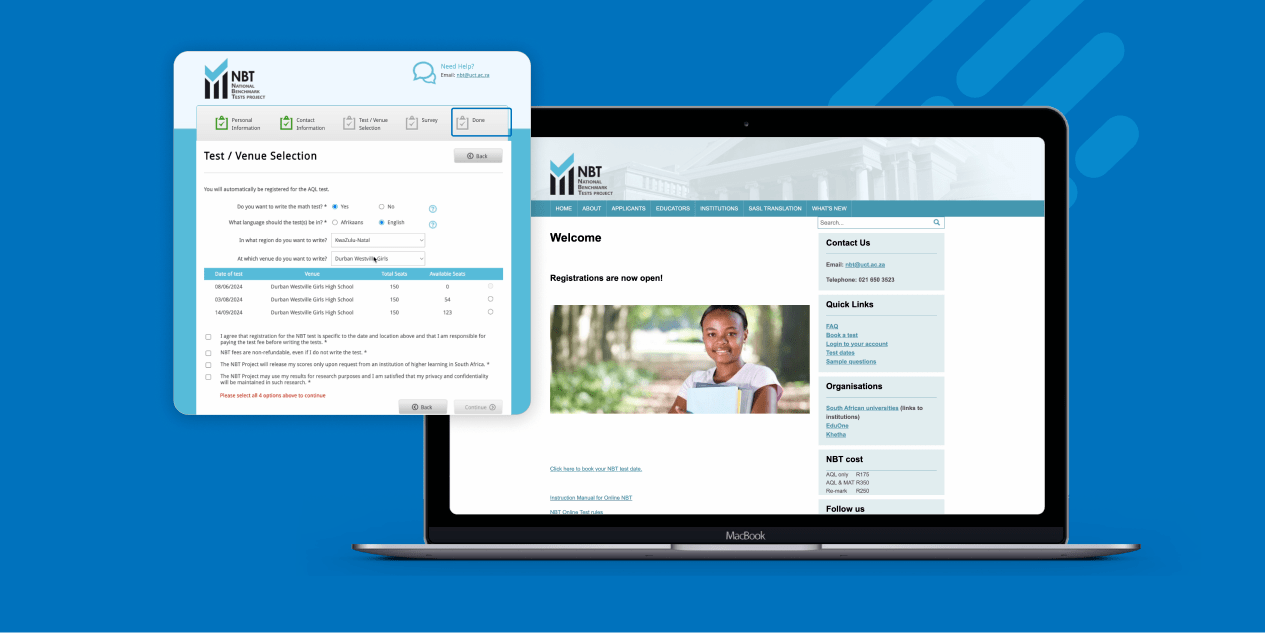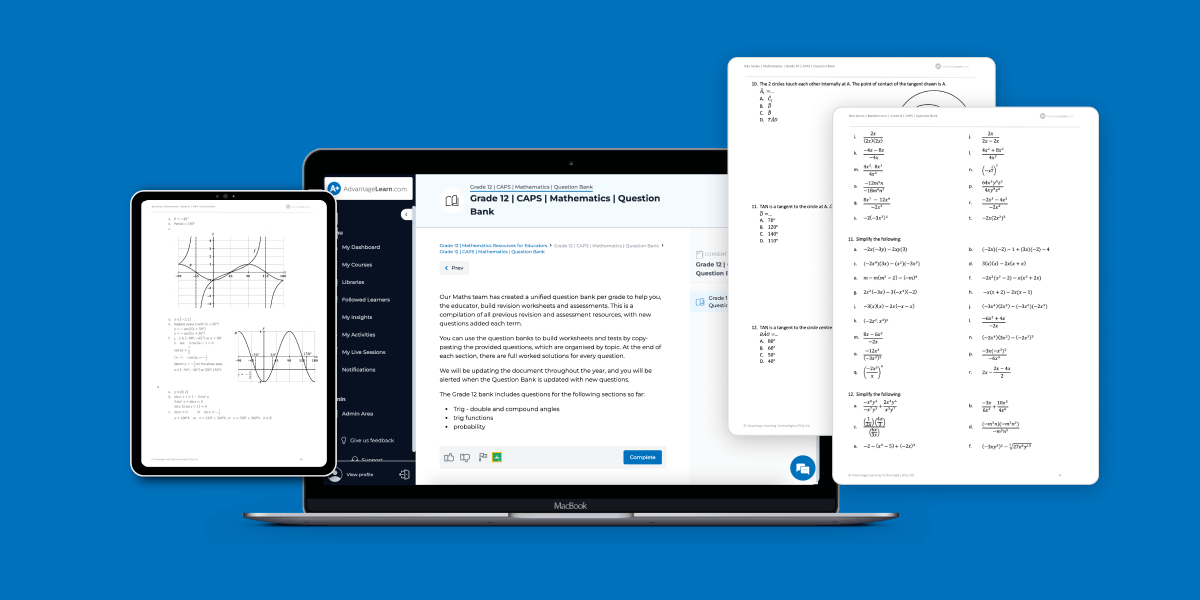
5 Top tips to navigate your child’s calendar
Education
Student tips


It seems that high school students (and students in general actually) are busier than ever. I’m not sure why this is – perhaps the pace of life overall is that much faster, more competition, more of everything, a greater need to be really good at stuff, as opposed to just doing it as a hobby. Much of life is outsourced – a lot of learning and extra-curricular activities that used to be housed within the schools is now done outside and on top of those done at school. This means a lot of lifting and carrying and LOGISTICS.
I’ve seen this through the years, not only in my personal experience but also through the lives of Advantage Learn parents and schools. The planning it takes to fit everything that needs to be done in a year is no mean feat. For example, we start talking to schools about the following year’s NBT for Schools date as early as August the year before. Parents start phoning us in November asking to book for their child’s NBT course date for the following July. Similarly, parents will put their children on Trish Pike’s extra maths lessons waiting list up to a year in advance to make sure they get a much-coveted spot with her. There are sports tours, school plays, dance competitions, rugby fixtures, galas, extra lessons, religious commitments, family time, holidays… all vying to fit into the same 365 days.
To make matters worse, oftentimes every extra-curricular or subject head would like to think their activity is the most important. I once received a phone call from a distressed mother whose son wouldn’t speak to her because he was taken off the 1st team rugby because he couldn’t make a game due to attending an NBT course.
Advantage Learn runs most Maths Workshops in the late mornings and afternoons on Saturdays to avoid clashing with school and sports activities.
So this begs the question, how do you navigate this all and know how to make the right decisions for your child, and your family? Here are our top tips for navigating this tricky territory:
-
Figure out priorities
Each child is different, as are their interests, strengths, weaknesses and aspirations. Thus each child’s calendar should be prioritized accordingly. Prioritization comes down to what is important to your child and you as a family, and according to what your child wants to do or study and the path that gets them there in the best way.
-
Address the biggest needs
What areas are going to hinder your child doing what they want to do? What is your child hoping to study or do as a career? If they are planning on being a professional rugby player or will be aiming for a sports scholarship, it is probably wise to ensure that they don’t miss out on any rugby fixtures or practises. If they’re planning on being an engineer and their marks are skating a fine line of acceptance or not, it is wise to choose the extra lessons, homework, and test prep when push comes to shove.
-
Find balance
A happy human is a successful human! All work and no play makes Jack a dull boy 😉 But seriously – your child will only be young once and trying to do everything and be everywhere would make anyone miserable – not forgetting the parents who have to do all the lifting and carrying!
-
Talk to your child.
Make sure that your child has some level of freedom of choice about their extra activities. Find out what they want to do and why. The biggest waste of money and time is a child who doesn’t want to do what they’re doing – ask any private maths tutor trying to teach a child who doesn’t want to be there (more about that topic in Adam’s blog post).
-
Don’t waste time (or money).
Make sure that when you do sign up for an extra-curricular activity it is worth your time and money. You could spend thousands per year on a private tutor who is not working for your child. This means not only wasted money but also wasted precious time. It is also wise to choose a solution that works best for you and your family. Travel a problem? Weekdays a problem? Weekends a problem? Make sure to choose an option that can fit you, as opposed to you needing to bend over backwards to fit in with the activity. A great example of this is Maths Online – basically an online tutor accessible to your child at any time day or night, from anywhere with an internet connection. You can also cancel it as soon as you no longer need it.
All parents just want the best for their child. We hope that these tips will help you navigate this tricky juggle!
We have already published all our Maths Workshops and NBT Workshops to help you manage your calendars for this year.
Happy learning.
This article was originally published on 26 Feb 2018
About the author

How to book your NBT test: a step-by-step guide
NBT
Featured
Booking your National Benchmark Test (NBT) is a crucial step in your journey towards university admission in South Africa. Here’s a detailed guid... Read more

Resource Drop: Grade 8-12 Maths Question Banks
Maths
Education
Neo Series
Featured
As educators ourselves, we understand the myriad of challenges faced when curating materials for effective teaching and assessment. It’s a balancing ... Read more

Class of 2023 Further Studies Results
Further Studies
Thriving on a challenge The Independent Examination Board (IEB) released the results of their International Secondary Certificate (ISC) on the... Read more
Do you want better Maths results?
Maths Online is a bank of over 2000+ extra lessons. Furthermore, gain access to our teacher support to help you when you need it!
More info

























